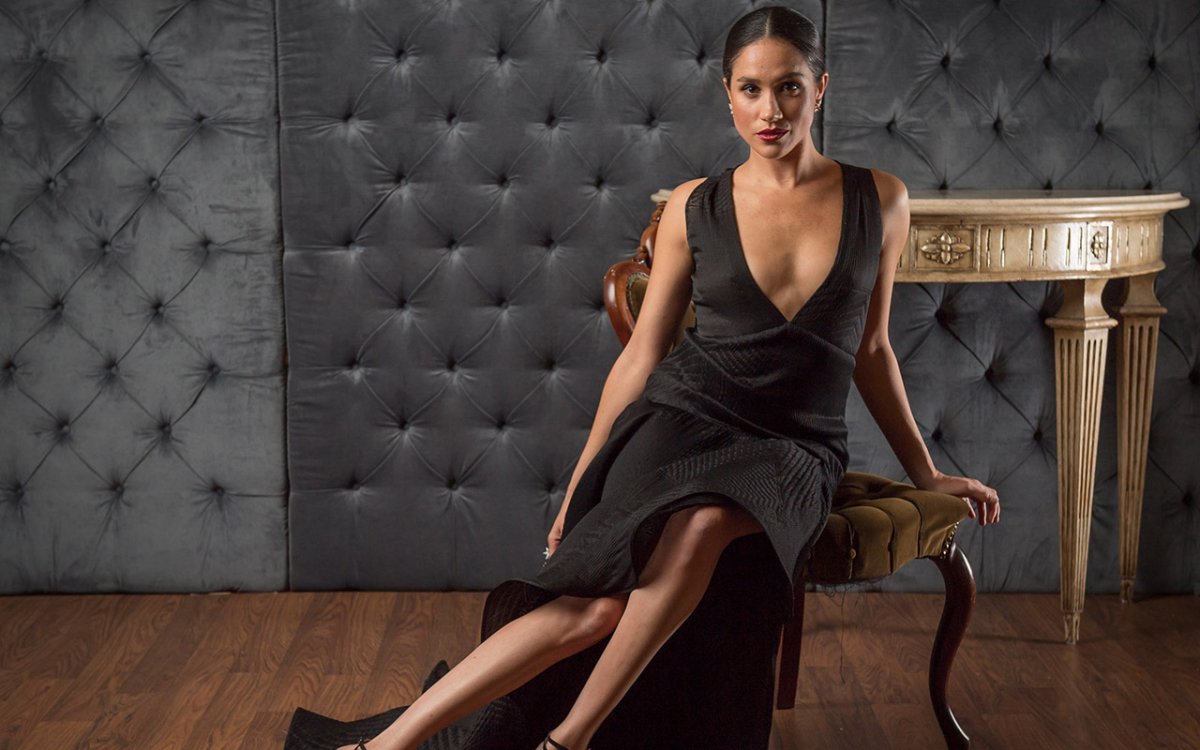Meghan Markle posted a personal essay about the racism her family’s experienced and thanked all “champions of change,” in honour of Martin Luther King Jr. Day.

The 35-year-old actress, whose mother is African-American and father is Caucasian, opened up about the struggles of being biracial in an essay for her website, TheTig.com.
In the essay, which was originally published this time last year but reposted as a tribute, the Suits star recounts a story her grandfather told her when she was 11, about how he packed up the car and moved the family from Ohio to California when her mother was around seven years old.
READ MORE: First pictures of Prince Harry and Meghan Markle together in London emerge
“Road trips to me were a collection of ‘Are we there yet?’s, the license plate game, the drive-throughs for filler food (where McDonalds was less of a treat and more of the norm), photo ops by signs welcoming you from one state to the next, and stops at local restaurants to stretch your legs,” Markle wrote.
“’Things were different then,’ my grandfather said,” Markle continued. “’Meggie, on our road trip, when we went to Kentucky Fried Chicken, we had to go to the back for ‘coloureds.’ The kitchen staff handed me the chicken from the back door and we ate in the parking lot. That’s just what it was.’”
Markle admitted that the story “still haunts me,” and reminds her of how far the country still has to go when it comes racism.
Markle also mentions the instances of outright abuse directed at her mother, such as an incident where a woman called her mother the “N” word because she took too long to pull out of a parking spot while leaving a concert at The Hollywood Bowl.
“I remember how hot my skin felt. How it scorched the air around me,” she wrote.
READ MORE: Gospel singer Travis Greene believes he can ‘redefine culture’ by performing at Trump inaugural ball
The essay ends on a hopeful note, thanking people such as Martin Luther King Jr., Cesar Chavez, Gloria Steinem, Harvey Milk and her own parents, for fighting in the name of change and equality.
Markle herself was subject to racist remarks once news of her relationship with Prince Harry broke. Kensington Palace issued a rare statement about a line being crossed with the social media attacks against the Prince’s new girlfriend.
WATCH BELOW: Prince Harry lashes out at media ‘harassment’ of girlfriend, actress Meghan Markle

Markle also previously discussed growing up biracial in an essay for Elle UK. In the essay she explained how being mixed race “paints a blurred line that is equal parts staggering and illuminating.”
“To describe something as being black and white means it is clearly defined. Yet when your ethnicity is black and white, the dichotomy is not that clear,” Markle wrote. “In fact, it creates a grey area.”
READ MORE: Kevin O’Leary: The millionaire reality show host who wants to be Canada’s prime minister
Markle also recalled how her parents made her feel special instead of “different.” She still remembers feeling deeply conflicted as early as seventh grade, when she couldn’t decide which box to check to indicate her ethnicity on a mandatory census.
“My teacher told me to check the box for Caucasian,” she continued. “‘Because that’s how you look, Meghan,’ she said. I put down my pen. Not as an act of defiance, but rather a symptom of my confusion. I couldn’t bring myself to do that, to picture the pit-in-her-belly sadness my mother would feel if she were to find out. So, I didn’t tick a box. I left my identity blank — a question mark, an absolute incomplete — much like how I felt.”
You can read her full essay on her website here.




Comments